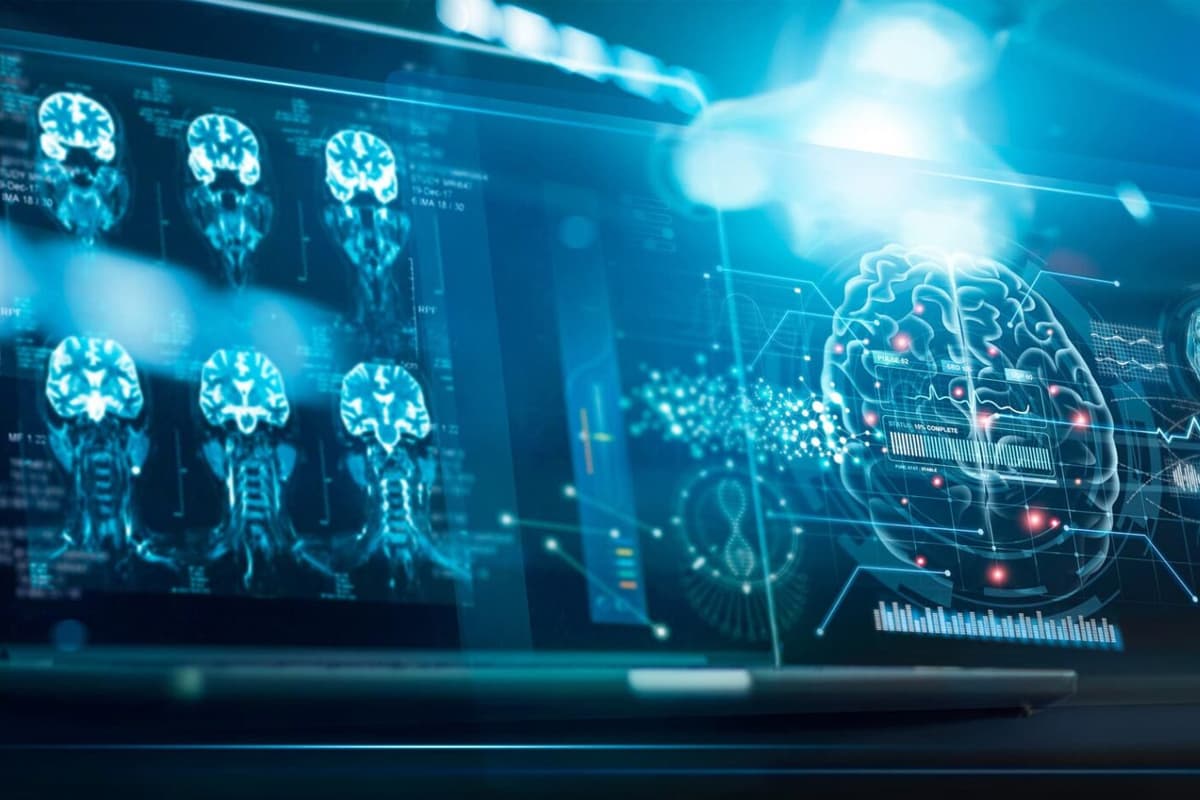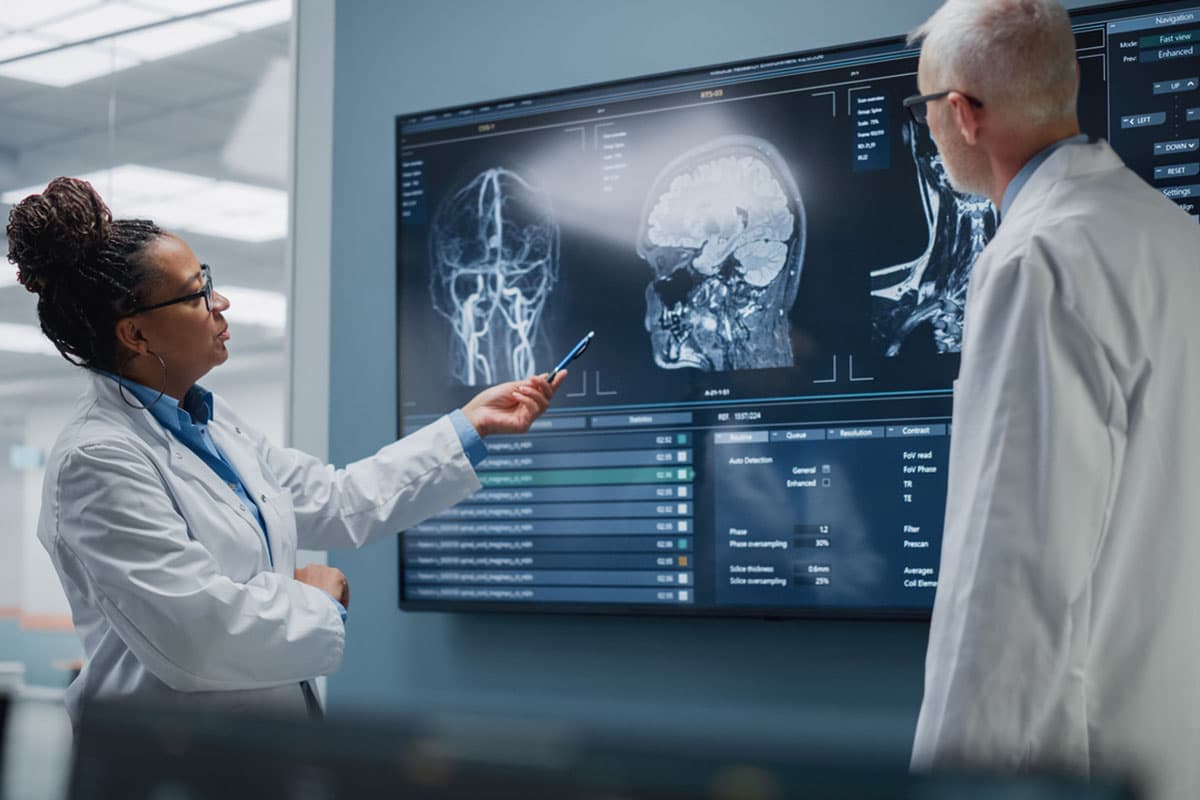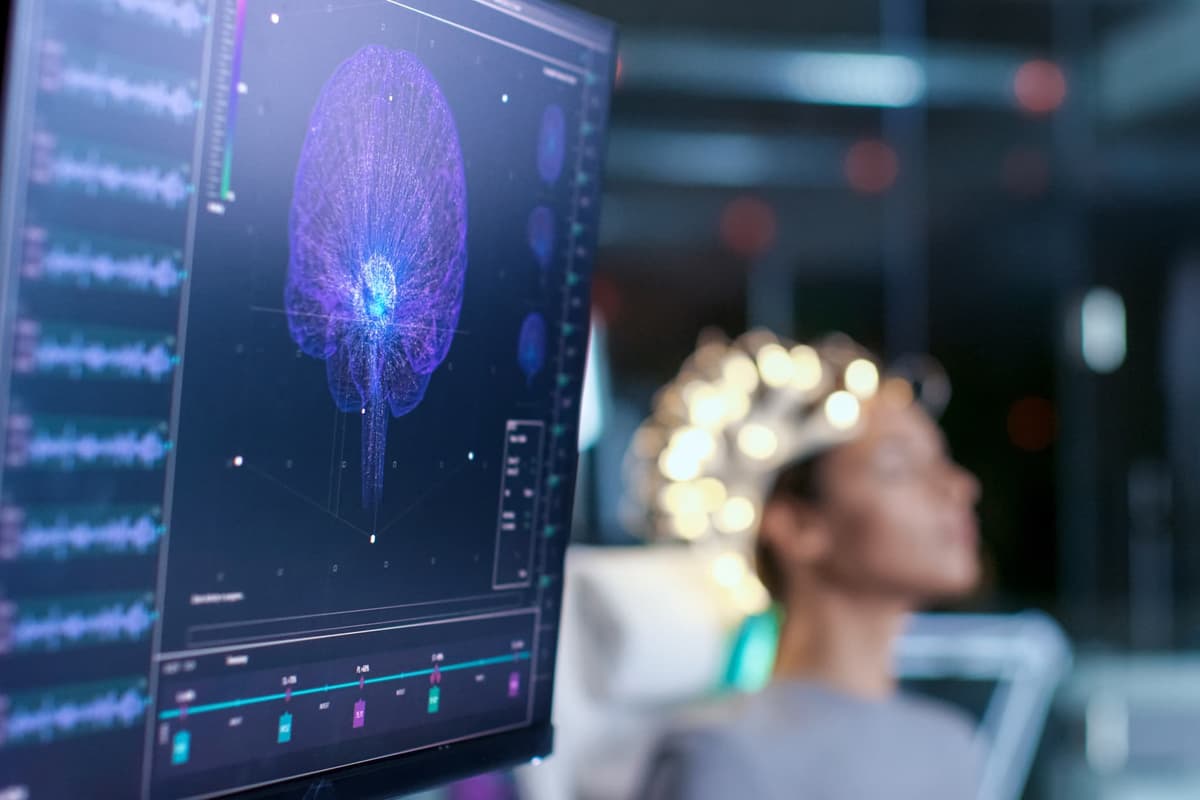A healthy brain supports and rewards healthy behavior. But when the brain is dysfunctional, it can work against you. Mental illnesses and addiction can adversely affect your decision-making, emotional regulation, memory, and impulse control—making recovery challenging.
For this reason, VCAT Treatment Center utilizes neuroscience/brain-based treatment techniques to help patients effectively manage complex mental health and substance use disorders.
We believe information and understanding are central to effective treatment and long-lasting recovery. This is why we use quantitative scientific data to detect the root cause of psychological and substance use disorders—rather than rely on guesswork as seen in traditional methods of intervention.
One way we gather information is by measuring, recording, and analyzing the electrical activity within the brain in real-time (i.e., brain mapping).

Brain mapping is a cutting-edge, evidence-based practice that allows us to accurately diagnose psychological disorders and addictions by identifying dysregulated brain areas linked to mental illnesses or addictions.
Real-time brain mapping is one of the evaluations used at our Psychological Assessment Center. It’s been proven to be highly effective for treating mental health and substance use disorders. The brain assessment helps us provide the correction you need to recover and reclaim your life.
At VCAT Treatment Center, we use brain-based quantitative electroencephalogram (qEEG) assessments to derive quantitative patterns that may correspond to cognitive deficits and/or diagnostic information. This is achieved by analyzing the electrical activity of the brain.
qEEG is an all-inclusive, computer-generated diagnostic tool that is key to the mental illnesses and addiction treatment program at VCAT Treatment Center.
Our monitoring equipment and instruments are a precise, painless, non-invasive way to pick up and understand the brain mechanisms that affect a client’s decision-making, impulse control, emotional regulation, and reaction.
A quantitative electroencephalogram gives us a virtual map of your brain. Using this information, our team of experts at VCAT Treatment Center can assess the effects of mental health and/or substance use disorders on your neural networks. We can then prescribe the best individualized treatment plan to address your addiction or mental illness at its core.
Your brain communicates by sending electrical impulses (brain waves) via neurons. It’s like an intricate electrical power grid. Think of neurons as “hubs” that network and connect the various workings of the brain—impacting essential cognitive functions like decision-making, memory, and emotional processing.
When you have mental health and/or substance use disorders, the electrical activity in your brain is typically dysregulated (deficient or excessive). The brain sites might have communication issues. These adverse effects may manifest as symptoms such as attention deficiency, memory loss, anxiety, and depression, among other negative psychological issues.
A quantitative electroencephalogram (qEEG) works by picking up and mapping the bandwidth and frequency of abnormalities causing mental health disorders or addictions. It gives us a picture of how your brain is functioning in real time—allowing us to identify atypical results.


Brain mapping is a relatively quick, non-invasive, and safe procedure. You’ll be asked to sit comfortably as a specialized sensor cap is placed on your scalp to monitor and measure neuron oscillations (brainwaves)—including delta, theta, alpha, and beta waves.
Combined with our state-of-the-art brain-mapping computer technology, our experts at VCAT Treatment Center are able to create topographic color-coded maps of your brain’s activity.
A report is generated based on the recorded data in comparison to normal controls. Using this as a reference, we can locate abnormalities that may be the underlying causes of your struggles with mental health and substance use disorders.
Brain mapping may be used to measure progress throughout the course of your treatment program at the VCAT Treatment Center.
Your brain needs maintenance to ensure the billions of neurons are firing as they should. This is especially important after your brain’s chemistry and activity have been adversely affected by repeated drug and alcohol use.
Brain mapping “looks under the hood” to determine what needs to be addressed to achieve recovery with a minimal probability of relapse.
The qEEG assessments used at VCAT Treatment Center leverage non-invasive, safe, and painless brain imaging technology to measure the relationship between the structure and function of the brain. Brain mapping can help people with mental health and/or substance use disorders in several ways, including:
Brain mapping gives us the right data to determine the easiest and best path to achieve your health and life goals. This may include breaking bad habits linked to your drug use, improving focus, or achieving peak performance. It’s an important step in breaking free from the shackles of mental illnesses and/or addiction.
VCAT Treatment Center is one of the industry leaders in brain mapping and qEEG-guided addiction and mental health treatment.
We rely on precise scientific measurements and interventions such as qEEG brain mapping to get to the root of mental health and substance use disorders. Our highly qualified professionals use data from brain mapping tools to formulate comprehensive, personalized treatment plans.
Brain mapping is an excellent place to start if you’re struggling with addiction and/or mental health disorders. It unearths the underlying root causes of your health issues. Along with our neuroscience/brain-based, behavioral, and alternative therapies, brain mapping can help restore healthy brain functioning—helping you achieve sustained recovery.

Ready to start your journey to long-lasting recovery and improved quality of life? Contact the VCAT Treatment Center today.
Whether you have a problematic history of addiction and mental health issues—or it’s your first time seeking help, our cutting-edge, brain-based treatment program can work for you. Give us a call to get started on the road to recovery!
Copyright 2022 VCAT Treatment Center. Privacy Policy | Site Map